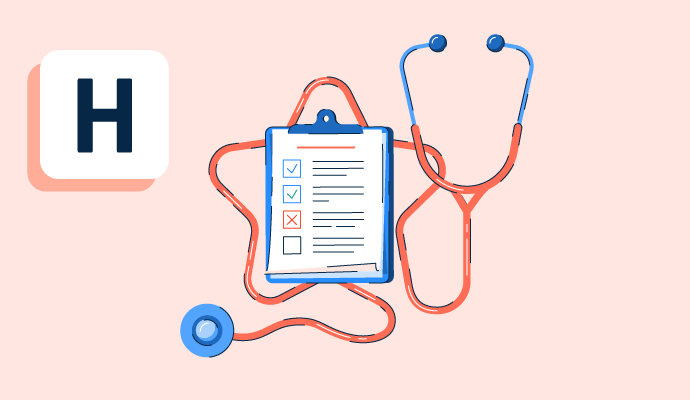What is HCAHPS?
HCAHPS, pronounced “H-Caps,” stands for Hospital Consumer Assessment of Healthcare Providers and Systems. It is a national, publicly reported, standardized survey of the hospital care experience from the patients’ perspective. It gives medical professionals the information needed to fairly compare patient experience reporting across hospitals locally, regionally, and nationally. The survey contains 29 questions about a patient’s care, environment, and overall hospital experience.
Hospitals and care providers use clinical communication and collaboration (CC&C) systems to coordinate data flow between physicians, nurses, clinicians, and other medical professionals. CC&C software improves communication between medical staff to improve care, ultimately leading to higher HCAHPS scores and better patient outcomes. Medical teams turn to these tools to facilitate real-time communication and store patient data for easy access and sharing.
History of HCAHPS
In 2002, the Centers for Medicare and Medicaid Services (CMS) partnered with the Agency for Healthcare Research and Quality (AHRQ) to develop the HCAHPS survey. The agencies conducted an extensive and rigorous approach during development, including a literature review, focus groups, interviews, psychometric analyses, and pilot testing. During this process, CMS also offered three opportunities for the public to provide input and comment on HCAHPS during development.
Following the process in 2005, the National Quality Forum, an organization representing the consensus of healthcare providers, professional organizations, and federal agencies, endorsed the HCAHPS survey. The Office of Management and Budget approved implementing HCAHPS for public reporting in late 2005.
CMS implemented HCAHPS in October 2006 and publicly reported the first round of results in March 2008. After adding some additional questions to the original survey in 2013 and 2018, CMS reduced the total number of questions to 29 in 2019, where it remains today.
Who can participate in the HCAHPS survey?
CMS and AHRQ designed the HCAHPS survey to gather data from a broad range of patients that meet the following criteria eligibility:
- Patients must be 18 years or older at the time of admission
- Patients must have had at least one overnight stay in the hospital as an inpatient during their treatment
- Patients must have a non-psychiatric MS-DRG/principal diagnosis at the time of discharge from the hospital
- Patients must be alive at the time of hospital discharge
In addition to the above criteria, some patients are deemed ineligible and are excluded from sampling because of logistical difficulties. These patients include:
- Patients who do not have a home address within the United States, Puerto Rico, Virgin Islands, or Northern Mariana Islands
- Patients discharged to hospice care, nursing homes, and skilled nursing facilities
- Patients who are prisoners
- Patients who stayed at a hospital with rules and regulations in a state that may exclude patients from participation in the survey
- Patients who request that the hospital not reveal that they are a patient or survey them, also known as a “no-publicity” patient
Administration of HCAHPS to discharged patients
Hospitals administer the HCAHPS survey to a random sample of adult patients with varying medical conditions. The HCAHPS survey goes out between 48 hours and six weeks after discharge. Hospitals can survey discharged patients using one of four approved methods:
- By mail
- By telephone
- By mail with a follow-up phone call
- With active interactive voice response (IVR)
The HCAHPS survey is officially available in many languages, including English, Spanish, Mandarin, Vietnamese, Russian, German, and Portuguese.
HCAHPS survey categories
There are 29 questions on the HCAHPS survey related to patient experience at the hospital. The questions cover various elements related to the hospital stay, including the following.
- Nurse communication: These questions ask patients about the care they receive from nurses. They cover treatment and listening, among other concerns.
- Doctor communication: Similar to the nurse-related questions, they ask patients about their interactions with their doctor(s) and whether they felt like the doctor(s) listened to them.
- Hospital environment: The environment-related questions inquire about the cleanliness and nighttime noise levels of the hospital.
- Care and experience at the hospital (including medications): These questions ask patients to share specifics about the assistance they needed during their stay (e.g., help getting to the bathroom) and how the staff explained and administered medications as necessary.
- Plans for leaving the hospital: This section of the survey gives patients a chance to reflect on their post-care follow-up. It aims to find out how the staff prepared patients for release.
- Overall hospital rating: Patients rate the hospital and indicate whether they would recommend it to friends and family.
- Understanding of care: These questions measure patients' subjective feelings about their care and health. It asks about whether hospital staff valued their preferences and administered clear and accurate information about their health upon leaving the hospital.
- Personal information: Finally, the survey captures a patient’s health rating and demographics.
Benefits of HCAHPS
HCAHPS offers many benefits to hospitals, including enhancing the patient experience by giving them an opportunity to share their feedback. More advantages are below.
- Accountability and transparency in healthcare: Since HCAHPS results are reported publicly, they promote transparency in the healthcare system. Patients and caregivers can use HCAHPS scores to make well-informed decisions about the facilities they choose for treatment.
- Standardized performance benchmarking across hospitals: Hospitals use HCAHPS scores to compare their performance against national, regional, and state averages. This shows hospitals where the hospital excels and where they can improve compared to their counterparts.
- Incentives and reimbursements for high patient satisfaction: Sometimes, hospitals may tie HCAHPS scores to financial incentives. This motivates healthcare workers to provide the best quality of care for optimal patient satisfaction.
Learn about medical documents and how they enhance patient care.

Alyssa Towns
Alyssa Towns works in communications and change management and is a freelance writer for G2. She mainly writes SaaS, productivity, and career-adjacent content. In her spare time, Alyssa is either enjoying a new restaurant with her husband, playing with her Bengal cats Yeti and Yowie, adventuring outdoors, or reading a book from her TBR list.

